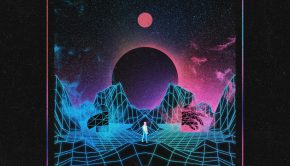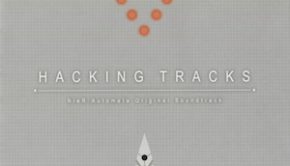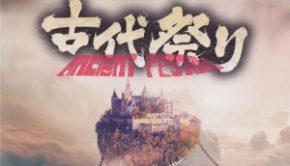Yuzo Koshiro Interview: Innovator in Game Music and Sound Design
 Yuzo Koshiro is one of the greatest innovators in game music and sound design. He has entertained listeners and influenced musicians with the melodic chiptunes of Ys and Etrian Odyssey, the rich orchestrations of ActRaiser and Beyond Oasis, and the electronic stylings of Streets of Rage and Wangan Midnight. He is also the owner and manager of a long-running family-based game developer, Ancient.
Yuzo Koshiro is one of the greatest innovators in game music and sound design. He has entertained listeners and influenced musicians with the melodic chiptunes of Ys and Etrian Odyssey, the rich orchestrations of ActRaiser and Beyond Oasis, and the electronic stylings of Streets of Rage and Wangan Midnight. He is also the owner and manager of a long-running family-based game developer, Ancient.
In this anniversary interview, Koshiro reflects the scope of his 25 year career by reminiscing about various key projects. He offers exclusive insight into his early years at Falcom, various stylistic and technological experiments thereafter, and recent embrace of the retro revival and indie projects. During the way, he provides many fascinating tidbits unknown to even Koshiro’s most dedicated followers till now.
Interview Credits
Interview Subject: Yuzo Koshiro
Interviewer: Chris Greening, Don Kotowski
Editor: Chris Greening
Translation & Localization: Shota Nakama, Ben Schweitzer
Coordination: Thomas Boecker
Interview Content
Chris: Yuzo Koshiro, many thanks for agreeing to speak to us today. The majority of your early works were composed with early sound boards, such as the PC-8801’s. What was the process of working with such technology and how enjoyable was it to work with? Did your prior experiences creating PSG-based music for a computer magazine help when you came to compose your first game music work, Xanadu Scenario II?
Yuzo Koshiro: While I was still a high school student, I would often make mockups of arcade game music form Namco, Konami, and Sega with PC-8801 for fun. I think the sequencing skills and experience I established then really helped when I was working on the music for Xanadu Scenario II.
Chris Before moving on to discussing your modern works, we would be fascinating to hear you recall your times at Falcom further. Your scores for Ys and Ys II are widely regarded as some of the finest and most influential classic RPG scores. What were your major goals and inspirations while creating them? What qualities made your compositions such as “Feena”, “First Step Towards Wars”, or “To Make the End of Battle” so timeless?
Yuzo Koshiro: I think the game’s world and music just happened to match well. To be honest, I am not sure why either. At the time, instead of creating music to match a scene, I would just create whatever kind of music I liked and apply it to a scene it seemed to match well. I think that that kind of unexpected quality created the game’s unique worldview.

Chris: Sorcerian was a scenario-based RPG that featuring 16 different chapters. How were you able to characterise the different scenarios of this game while still retaining the distinctive Falcom sound? What size was your contribution to this soundtrack compared to your three co-composers?
Yuzo Koshiro: I remember composing 39 pieces out of 60 pieces in total. I wasn’t particularly concerned with the differences between the scenarios, and as I said before, matching the music; instead I would create music that I liked, and fit it to a scenario that it matched. I think that the distinctive Falcom sound featured on this score was a combination of a very high quality sound driver and the tone colors that I created.
Chris: During your time at Falcom, you also worked on three other games, namely Xanadu Scenario II, Romancia – Dragon Slayer Jr., and Dragon Slayer IV – Drasle Family. Could you discuss how you approached the music for each of these titles to achieve rather different moods and styles?
Yuzo Koshiro: When I composed Xanadu Scenario II, I was a mere beginner, so I composed blindly, as if in a trance. I didn’t have a special approach; I just wanted to create PC game music with the kind of drive that I liked in arcade game music, and that was my main motivation. I only composed the opening piece for Romancia, but that piece was influenced by a band I loved at the time, The Alfee.Dragon Slayer IV was also some of the first music I created for Falcom, but at the time I was influenced by Konami’s sound.
Chris: Your music for Ys, Ys II, and Sorcerian has been extensively arranged for various games, albums, and concerts. Are you proud that your compositions for these titles have become so iconic or is it partly bittersweet given you do not own their copyrights? Do you ever follow the arrangements of your music and, if so, what do you think of them?
Yuzo Koshiro: Certainly I am proud of all of them. It is unfortunate about the copyrights, but I am very much grateful for the Ys and Sorcerian franchises because so many people heard my music through them. I was actually not so excited about the arrange albums at the time, but now I feel differently. The orchestral arrangements Kentaro Haneda made are particularly great.
Chris: Algarna, The Scheme, Misty Blue, and The Revenge of Shinobi are probably the biggest landmarks of your early freelance career. Could you discuss how each of these scores influenced both the progression of your career and your development as a musician? Are you pleased each of these scores, along with various others, were recently re-released in several compilation albums?
Yuzo Koshiro: Indeed, Misty Blue, The Scheme, and The Revenge of Shinobi were big turning points for me as a composer. Until then I had mainly created rock and fusion music, but Misty Blue and The Scheme were Eurobeat, while The Revenge of Shinobi was based on House music. Those scores are the origin of my dance music, and of course I am pleased with all of them. I don’t have any notable memories of Algarna, though.

Chris: During your early years, you were also involved in several key ports. What were the challenges of working with the sounds of one of the earliest video games, Bosconian, for its X1 port?
Yuzo Koshiro: I decided to not be too conscious about the original Bosconian music and focus on making something with a good groove. Until then, I had worked with the six-part FM synth, so with the change to the six-part X680000 I was able to create a heavier sound.
Chris: In addition, you were responsible for the Master System’s adaptation of Sonic the Hedgehog. How did you approach downgrading Sonic the Hedgehog‘s music for an 8-bit console?
Yuzo Koshiro: For Sonic the Hedgehog, I tried to keep the feel of the original music and ported it to PSG. However, we only actually used three pieces from the original game for this version; the remainder is my own original music.
Chris: While you are sometimes pigeonholed as a chiptune composer, your works are incredible diverse — spanning orchestral, electronic, hip-hop, rock, and jazz music. What has enabled you to master so many different styles of music and, what’s more, use each in an individualised way?
Yuzo Koshiro: I have tried not to limit myself since I was little, and have continued listening to all kinds of music like classical, rock, techno, and so on. I think that has really helped me out. All music must have its roots. I have always looked for it while studying, and that has continued to help me. Also, I believe it was beneficial that I have learned how to play the piano, violin, cello and guitar.
Chris: ActRaiser was your breakthrough work as an orchestral composer. How did you create appropriate music to accompany both the platforming and simulation elements of this title? Was it a challenge to create such high definition orchestral sounds while using the Super Nintendo?
Yuzo Koshiro: I had not previously composed an orchestral score, so I went entirely by instinct. Although I was not really aiming to simulate an actual orchestra, I think what influenced the work was the fact that it was easier to recreate the string sound on the Super Nintendo than on FM synth. I didn’t find the actual composition and sound design all that difficult on this project.
Chris: Beyond Oasis (aka The Story of Thor) features one of the most revolutionary orchestral scores of any video game. What inspired your experimental approach to this title after the more traditionalActRaiser?
Yuzo Koshiro: I started studying classical music and the orchestra seriously around that time, and I wanted to apply what I learned for Beyond Oasis. I think the music was very exciting because I applied some contemporary classical techniques, for example atonality and polytonality.

Chris: You have explored contemporary classical techniques on a range of other projects too. To what extent did the Beyond Oasis project influence your orchestral compositions on subsequent works, for example Legend of Oasis, Lost Regnum, and Merregnon?
Yuzo Koshiro: My experiences on Beyond Oasis were very influential. I utilized the late romantic style inLegend of Oasis and Merregnon, and I used some techniques from film soundtracks for Lost Regnum, but I had learned all of these things from my studies for Beyond Oasis.
Chris: Considering your versatility further, the Streets of Rage (aka Bare Knuckle) trilogy features a range of electronic approaches from you. How were you able to create such compositionally and technologically accomplished electronic tracks for these games? Did you enjoy revisiting the scores as a DJ at recent Linear events?
Yuzo Koshiro: I adopted the techniques of early 90s house and hip-hop music for the first two Streets of Rage titles. In contrast, for the third game, I used the most advanced techno technique of the time by incorporating heavily randomized sequences. I think researching the featured genres deeply led the scores to have a highly complete feel. In addition, the special sequencing program that I made with C++ helped the Streets of Rage 3 score in that regard. As for DJing with the series’ music, my DJ skills weren’t very good at the time, so I don’t have very good memories of it. (laughs)
Chris: Your Saturn projects such as Culdcept, Vatlva, and Zork were much more technologically liberated. Was this the primary reason why you chose to approach these titles in such a progressive way? How were you able to incorporate appropriate instrumental and voice samples for these scores?
Yuzo Koshiro: Around then, regardless of the limitations of the hardware, I constantly searched for new approaches and tried them all. We were able to use more voice and instrument samples in these titles because, for the first time, we incorporated a sampler, Sample Cell2, and recorded with a hard drive.
Chris: In recent years, you’ve also explored trance music on the Wangan Midnight Maximum Tune trilogy. What inspired this approach to these soundtrack, compared with the more conventional score for the original Wangan Midnight, and how have you kept the games sounding fresh over the years? Given your choice to include trance arrangements in various arranged albums too, is it safe to assume the style has become a favourite of yours?
Yuzo Koshiro: The score for Wangan Midnight Maximum Tune turned towards trance music because the producer, from Bandai Namco, wanted it strongly. I had not heard much Trance music until then, but I got used to it pretty quickly since I already liked other types of dance music. To keep the sound fresh, I have used the most current trance sound throughout the series. I’ve really come to like the genre too.

Chris: You also bridged the music of two major publishers with your contributions to Namco X Capcom. Could you discuss how you approached the original songs for this title and how you incorporated your pieces into an otherwise arranged score? What was it like to revisit this score, among others, at theExtra: Hyper Game Music Event?
Yuzo Koshiro: Actually, I only wrote the opening and ending vocal themes for Namco X Capcom, and other people did the arrangements. For Extra: Hyper Game Music Event, the singer Flair performed my music live. It is a great memory of mine. It was the first time that my music was performed live in such a setting, though, so I was very nervous.
Chris: In 2007 and 2008, your scores for Etrian Odyssey (aka Sekaiju no MeiQ) and Etrian Odyssey II(aka Sekaiju no MeiQ II) were released. Could you describe how you came to become the composer for these scores and what inspired your decision to use PC-8801 sound source once more? Given the retro synth, how were you able to make the town, dungeon, and action themes so expressive and distinctive for these titles?
Yuzo Koshiro: Kazuya Niinou-san, the original director for the series, offered me the job, and a big part of the reason was my ability to create nostalgic-sounding music. I picked the PC-8801 because it was the most suitable device for creating that nostalgic sound. However, just playing back PC-8801 sounds on the DS would make the music really boring and flat, so I mixed in PCM and other new sounds to add thickness. I think that helped the game’s sound to be distinctive.
Chris: Most recently, Etrian Odyssey III (aka Sekaiju no MeiQ III) was released in Japan. You’ve stated in other interviews that the music style was drastically changed for this game. Could you elaborate on your decision to change the styles of many of the battle themes and labyrinth themes and why you chose the styles you used?
Yuzo Koshiro: The drastic change in sound was requested by the director of the game, Komori-san. The labyrinth music wasn’t changed very much, but the orchestral boss and battle themes of the originals were replaced with hard rock. I think he wanted it to be fun and upbeat. I think these changes worked out pretty well.
Chris: Surprisingly, in 2009, rather than a Etrian Odyssey game, a game entitled 7th Dragon was released, with you as the primary composer. Given the distinct differences between this game and the Etrian Odyssey series, could you elaborate on how you decided the direction of this musical score? What inspired the decision to include the option to play either an orchestral version or an 8-bit version on the game?
Yuzo Koshiro: This was also a request from Niinou-san, and we decided together on the musical direction. We purposefully chose orchestral music to differentiate it from the FM synth sound of Etrian Odyssey. However, we also decided to include an 8-bit version.

Chris: Many would say that the arrange albums for the Etrian Odyssey and 7th Dragon games were very successful collaborations. Could you describe your feelings when it came to supervising and arranging for these projects? Of the five arranged albums released, which is the most special to you?
Yuzo Koshiro: Norihiko Hibino was the primary arranger on those albums, and I very much like them all. It is therefore really difficult to rank them, but if I must, I would probably choose the 7th Dragonarranged album.
Chris: On the topic of retro productions, your music was recently featured on the indie action RPGMamotte Knight. Could you elaborate on what inspired this endearing game? How did you approach the score for this title and how does it compare to your other chiptune works?
Yuzo Koshiro: Wada, a member of my company, did all of the programming and graphics for Mamotte Knight. I only did the music. The game’s content and expression are strongly influenced by the NES era. In the audio as well, I simulated the NES sound faithfully. That said, I have never compared the score with my other chiptune works.
Chris: You’re also closely involved with the development of the Hitman Reborn series of fighting adaptations in both executive and audio roles. Could you elaborate on how your roles have influenced the series’ development.
Yuzo Koshiro: The Hitman Reborn series is almost entirely developed within my company, Ancient. I have contributed a few pieces of music for the series too. I also help to check the game’s balance because I love fighting games. (laughs).
Chris: You mention that Ancient, the developer of Mamotte Knight and Hitman Reborn, is your own company. While you have talked before about the company’s works, both old and recent, could you tell us more about how the company functions in modern times? What do your administrative responsibilities at the company involve and how do you coordinate the musical roles with your co-composers?
Yuzo Koshiro: Actually, I do not directly manage the development team, and there are two directors assigned to do so. However, Takeshi Arai and I are currently responsible for supervising the in-house composers. In addition, I handle the company’s management and accounting with my mother [Editor’s Note: Tomo Koshiro, who founded Ancient in 1990].

Chris: We’re massively grateful for your time and responses today, Yuzo Koshiro. Are you able to say anything about your upcoming projects, such as Dragonball Online? In addition, are there any final words you’d like to say to your various fans over the world?
Yuzo Koshiro: The open beta version of Dragonball Online has been released in Korea, but it seems like it will be a bit longer before its Japanese release. I would definitely like Japanese players to have the chance to hear the challenging music I am contributing. There will be more pieces added with every patch, and each update has so many! (laughs) I am working on several other big projects this year as well. I can’t say anything yet, but please look forward to them.
Many thanks to Thomas Boecker for kindly coordinating this interview. In addition, thank you to Shota Nakama and Ben Schweitzer for their extensive help in the various stages of the translation process, and Don Kotowski for his contributions to the DS score questions.
Posted on February 15, 2011 by Chris Greening. Last modified on March 2, 2014.














